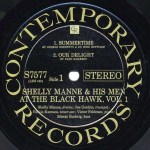
More of the Music of David Bowie
Because the conventional wisdom turned out to be so wrong.
Our intuition that the British originals would sound the best was incorrect.
The experiments we carried out falsified that prediction.
In the audiophile record collecting world, intuitions have a bad track record, but more than a few audiophiles — many of whom are addicted to sharing their “record knowledge” on audiophile forums — seem unaware of this reality.
Taking a page from one of the greatest minds of the 20th century, we’ve opted to use a more scientific approach to discovering the best sounding record pressings, and we encourage you to do likewise.
We pioneered the evidence-based approach to finding the best sounding pressings, and, like all good scientists, we shared it with everyone. Some in the audiophile community have taken it to heart, but most have chosen to put their faith in reviewers, forum posters, common sense and logic.
None of these produce consistently good results, but those who use these methods are loathe to doubt them and only rarely if ever learn the error of their ways.
Once a decision has been made and a specific pressing acquired — you could call it door number three I suppose — cognitive dissonance and confirmation bias immediately kick in to justify the result, and soon enough the game is over. The prize has been won. It’s the best prize ever. It does everything right, everything you’d hoped for.
But the best sounding copy of the record was no behind door number three.
You don’t have the best sounding pressing (well, you might, but if you did it would be entirely the result of chance, since you have no experimental evidence), but as long as you think you do, and, like most audiophiles, you play records only for yourself, and purely for enjoyment, you have no way of discovering where on the spectrum of best to worst your record sits.
As long as you think you have the best, you have the best. How could there ever be any evidence offered to the contrary?
Making an effort to prove yourself wrong is surely the key to making progress in this hobby. Nothing will do more to improve the quality of your record collection, of that we are convinced.
Back to Bowie
The original UK Orange Label pressings did not sound especially good to us, so we kept looking.
Over the course of the last few years, during which time we investigated every different pressing we could get our hands on, finally some good sounding copies of the album came our way. And they were not originals. The lucky owner of this copy will be one of the few to know what label the Shootout Winning pressing is on, and in what country it was pressed.
(more…)



 Jethro Tull Albums Available Now
Jethro Tull Albums Available Now





